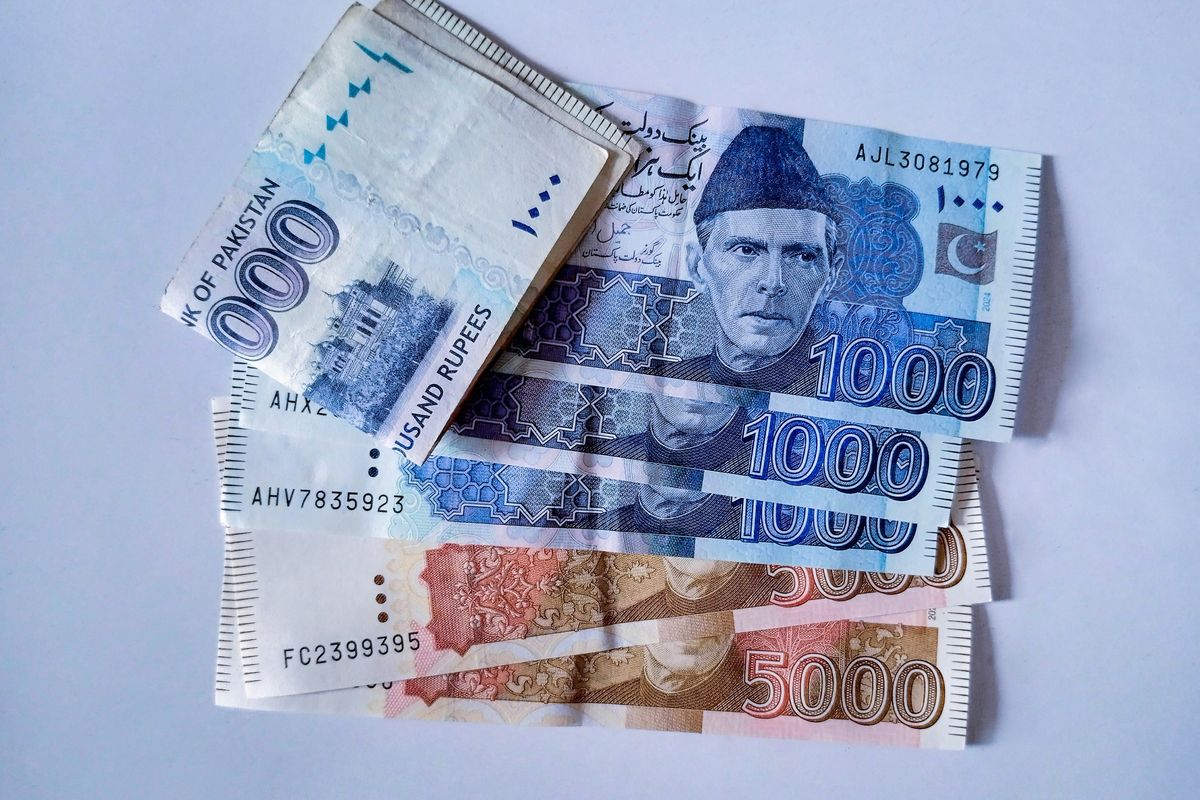Pakistan's conventional banks to benefit whereas Islamic banks to take a dent on earnings
SBP revises minimum deposit rules for financial institutions and mandates profit sharing for Islamic banks
Shahbaz Ashraf
Business Consultant
Seasoned Investment Professional | CFA | 17+ Years of Experience in Equity Research, Valuation & Advisory Seasoned investment professional with over 17 years of experience in equity research, financial analysis, valuations, and investment advisory—primarily focused on financial services firms, including equity brokerages, asset management companies, and family offices. Skilled in financial modeling, portfolio management, and evaluating multi-asset investment opportunities. Known for delivering data-driven insights and actionable strategies tailored to both institutional and private clients. Holds a BBA and MBA in Finance from the Institute of Business Management (IoBM), Karachi, and is a Chartered Financial Analyst (CFA).

Pakistani Currency Banknotes
Shutterstock
Pakistan's central bank has finally confirmed rumors that had been circulating in the market for the last few days. Two separate notifications issued by the State Bank of Pakistan (SBP) on Tuesday spelled boon for one and disadvantage for another.
In one notification, the SBP stated that the minimum rate of return would not be applicable on deposits of financial institutions, public sector enterprises and public limited companies held in conventional banks.
In another one, the SBP mandated Islamic banking institutions (IBIs) to pay at least 75% of the average profits earned on all their investment pools to regular savings account holders, excluding financial institutions, public sector enterprises and public limited companies.
The method for determining the average profit of a pool given by the SBP is to divide the monthly gross earnings of the pool by its monthly average assets, excluding fixed assets.
Moreover, pools made by the IBIs for shariah-compliant standing ceiling facility and open market operations will not be included while calculating the average weighted gross yield of all pools.
Both directives are applicable from January 1.
Impact on banking sector
Conventional banks big beneficiaries
Conventional banks that have a higher percentage of corporate savings deposits would benefit the most. Based on the numbers, around 50% of total deposits of majority of the banks listed on the KSE-100 are corporate deposits, of which roughly 37% of deposits are savings accounts.
Thus, 18-20% of the deposits of conventional banks would benefit from this scenario. This recent development will also help banks in pushing their advance-to-deposits ratio (ADR) to 50% and avoid paying additional tax. On the other hand, this might move some deposits to money market funds or other fixed income asset classes.
Nukta research shows that for every 1% increase in deposit costs, average earnings go up by 5%. However, the effect varies by bank. For banks with higher corporate deposits, a 1% decline in deposit costs could increase earnings by 6% to 9%. For others with less corporate exposure, earnings might rise by 2% to 4%.
The banks with higher share of corporate deposits and higher savings account are National Bank (NBP), Bank Alfalah (BAFL) and Askari Bank (AKBL). These three respective banks have ~65% corporate deposits, whereas MCB Bank Limited, United Bank Limited (UBL), Habib Bank Limited (HBL), Bank AL Habib (BAHL) and Allied Bank (ABL) have less than 40% in corporate deposits, so the impact on them is smaller.
Islamic banks to be negatively impacted
Meanwhile, the impact on Islamic banks might be not very straightforward. However, as per SBP guidance of sharing 75% of gross yield to savings with account individual depositors and Nukta calculations, the impact is PKR 8.7 billion — which translates into PKR 5 per share or 10% of CY23 earnings.
This impact may change once there is further clarity from the respective banks.
To further gauge the impact, for every one percentage point change in cost of deposits of Meezan Bank, the gross impact would be around PKR 7.4 billion and net impact would be PKR 3.5 billion, translating in to earnings per share impact of PKR 2.2 per share.
Interestingly, the impact on Faysal bank (FABL) is negligible as Faysal Bank’s percentage of deposits is just 17%, whereas Meezan Bank has exposure of 65% towards individuals.
The MDR timeline
The central bank first introduced the minimum rate of return in June 2008, mandating banks to pay at-least 5% per annum.
In December 2021, this minimum rate was increased to 7.5%, following a rise in the central bank's policy rate.
In September 2013, it was adjusted to be 0.5% below the SBP Repo Rate.
Currently, the minimum rate is 12.50%.







Comments
See what people are discussing